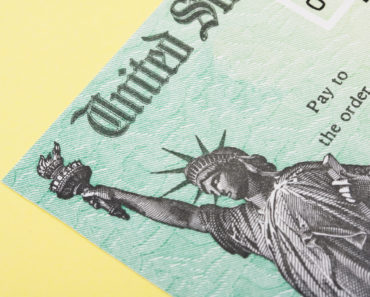With sky-high rent rates, the idea of finding a rental space can be very overwhelming. While there are many rules and regulations about what landlords can and can’t do, it doesn’t change the fact that it can be difficult to afford housing in different stages of your life. If you’re facing housing challenges, the government has options for you.
Let’s talk about what the government can do if you need help paying for your apartment rental.
Renting an Apartment with Government Assistance
There are three options when it comes to having the government help you pay for your apartment: public housing, privately-owned subsidized housing, and housing choice vouchers. Let’s discuss them.
Public Housing
The first type of government-funded housing is called public housing. Public housing was created to provide decent and safe living conditions for eligible low-income families, the elderly, and people with disabilities. Public housing comes in many different sizes and types, such as single-family homes, duplexes, and even high-rise apartments. In the United States, approximately 1.2 million people are living in public housing units.
The Housing Authority (HA) uses income limits to decide if a person or family can make use of this assistance. The income limit is set by the county or metropolitan area, which means you can be eligible for one place but not another. Even though they can vary by specific number, the income levels are always either 80% or 50% of the median income of the area.
Applying for public housing is a fairly serious process. The application must be written, and either you or your housing authority representative fill it out. The Housing Authority will need to know how many people will be living in the new unit, family characteristics, an estimate of the anticipated income for the next twelve months, the source of the income, and all information necessary to verify your income, deductions and family composition. Your representative may even schedule a visit to your current home to see how you maintain it.
Privately-owned subsidized housing
In the United States, many landlords receive funding from the Department of Housing and Urban Development (HUD), and this funding allows them to offer rental spaces to low-income tenants at a reduced rate. Anyone who privately owns rental housing units can be eligible to provide their tenants with this benefit. However, the question is, will you qualify for the assistance. Just like the public housing, HUD income limits vary depending on the region where you’re looking for an apartment, and these requirements can change year by year.
When it comes to qualifying for privately owned subsidized housing, it all depends on your yearly income. There are three different low-income tiers. If your household earnings are no more than 80% of the median income for the area, then you are considered low income. If your household earns no more than 50% of the median income, you are considered very low income. The last tier is extremely low income, and you qualify for it if your family income is no more than 60% of the very low-income level.
The process of applying for privately owned subsidized housing is a little different from applying for public housing. Rather than fill out an application at your Housing Authority, you search for an apartment, fill out the application with the building, and make sure you qualify for assistance. The HUD makes the search for this housing very easy because it provides a database with all of the eligible houses. The database is regularly updated, and it covers all 50 states, the District of Columbia, and Puerto Rico. For this type of assistance, people who are homeless are given preference, and there are different rules for the elderly and disabled.
Housing Choice Vouchers
The housing choice voucher program is the government’s major program for helping very low-income families, the elderly, and people with disabilities find and afford decent housing in the private market. Unlike privately-owned subsidized housing, housing choice vouchers require the individual to find their own housing because the assistance is provided to the family or individual, not to the owner of the rental space. A participant in this program can choose any rental that meets the program’s requirements and is not located in a subsidized housing project.
Housing choice vouchers come from your local Public Housing Agency (PHA). The PHAs receive federal funding from the United States Department of Housing and Urban Development to provide families and individuals with housing vouchers. Anyone issued a housing voucher is responsible for finding their own living accommodations and making sure the owner is willing to participate in the program. The individual’s current residence can be included in the search as long as the rental unit meets the minimum standards of health and safety determined by the PHA.
Once the landlord accepts the housing choice voucher, they are paid directly by the PHA on behalf of the family or individual. The family or individual pays the difference between the actual rate charged by the landlord and the amount subsidized by the program. In some cases, a family can use the housing voucher to purchase a home.
Just like for the other two housing programs, eligibility for a housing voucher is determined by your total annual gross income and family size. In general, income must not go over 50% of the median income for the city where the rental is located, and 75% of the housing vouchers in this program must go to applicants whose income is 30% or less of the median income in the area.
Conclusion
For people who are having trouble paying rent, the government has three primary programs to help make ends meet. There is public housing, privately owned subsidized housing, and housing choice vouchers. All three of these programs require the applicants to make 50% of the median income of the area, and these programs show a preference towards people who are making 30% or less of the median income. If you or someone you know is struggling to afford housing, then any one of these three programs can be beneficial.





